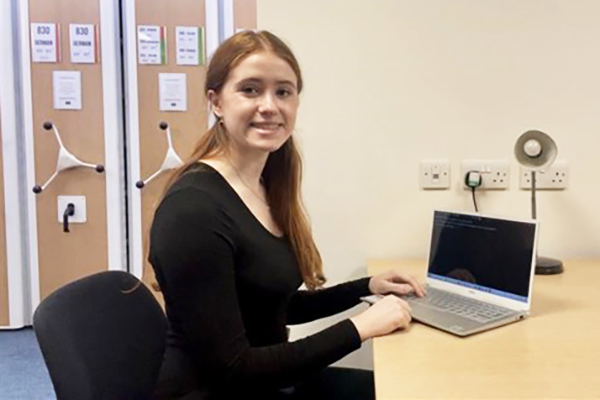Lily Kenningham completes internship in the QUASAR Group

Lily Kenningham, an undergraduate student from Oxford University has made significant progress during her internship in the QUASAR Group working with Prof Carsten Welsch and Dr Bifeng Lei during six weeks. Her research focused on simulating the interaction between lasers and [carbon nanotubes (CNTs)] to develop more efficient and compact particle accelerators.
Lily’s work explored the potential of optical laser-driven nanostructured CNTs forest to create sharper acceleration gradients than gaseous plasma-based accelerators, which could lead to smaller and more affordable particle accelerators. Using numerical simulations, she has studied the basic dynamics of laser-CNT interactions. In particularly, she has demonstrated the nonlinear plasma bubble can be stably generated inside the nanostructured CNT channel which can lead to the self-trapping of nC-level conduction electrons and then acceleration to high energy. Her work will enhance our understanding of some fundamental physical processes during the laser channelling through the CNT materials and then the super-dense plasma wakefield acceleration. This will be valuable for the future development of such ultra-compact solid-state accelerators. This also has major implications for medical applications like electron- and positron-beam therapy, as well as for future particle colliders.
By conducting detailed simulations, Lily investigated various parameters and conditions to optimize the acceleration process. Her findings could contribute to the development of more efficient and powerful particle accelerators.
The QUASAR Group is excited about Lily’s achievements and her potential to make further advancements in this field of research.